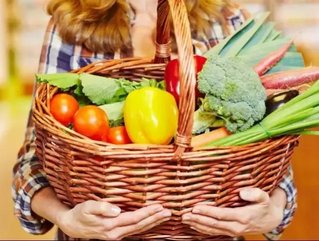[REPORT] United States organic farms achieved $5.5 billion in sales

Momentum has been building in the organics industry for quite some time, and the numbers continue to confidently reflect that growth. The most recent report from the U.S. Department of Agriculture (USDA) shows enormous leaps for organic farmers. According to new data, sales from United States organic farms clocked in a t $5.5 billion last year, representing a 72 percent increase since 2008.
RELATED CONTENT: What Costco’s exponential growth in organics says about the industry at-large
This growth in sales is tied directly to a growth in consumer demand for a wider range of simpler, less processed, and more organically produced food and beverage products. As this becomes a more mainstream interest, producers and retailers alike have started catering to this growing consumer demographic—Reuters points out that sales at natural and organic retailers overall increased by nine percent in the last year, and this summer warehouse chain Costco edged out the more niche Whole Foods Market as the top seller of organic products in the United States.
As the report states, organic milk came out on top as the most in-demand domestically-produced organic product accounting for $1.1 billion of sales; free-range organic eggs were a distant second with $420 million in sales. But the USDA asserts that sales are up across the board from organic produce to organic meats.
RELATED CONTENT: [VIDEO] Despite Using 80% of Resources, Big Agriculture is Spared Water Restrictions in California
But while consumer demand is increasing, but the USDA also reports that the number of organic farms in the United States has actually decreased by three percent. In 2008 the USDA counted 14,540 organic farms in operation in the U.S.—today the USDA counted 14,093.
The USDA offers several explanations for this: different methods for surveying have come into use over the years, and farms making $5,000 or less from sales are exempt from the need for organic certification. The department also states that the amount of larger organic farms in the U.S. has increased 15 percent to 12,634 since 2008, with both smaller farms becoming certified and larger corporations bringing organic production into their branding portfolios.
RELATED CONTENT: Growing Together: Diet Trends and the Organic Industry
Still, total U.S. organic sales reached $35.9 billion in 2014, suggesting that a significant portion of the U.S. organics market share comes from produce that has been imported from elsewhere. As U.S. organic farms continue to grow alongside demand, everyone from small independent businesses to major brands has a chance to make a larger part of that percentage their own.
[SOURCE: Reuters]
Click here to read the October 2015 edition of Business Review USA!








